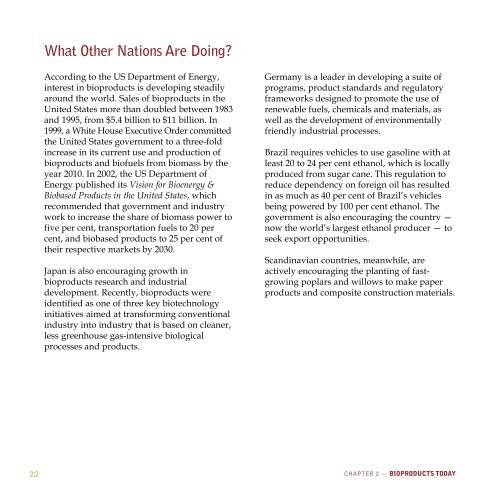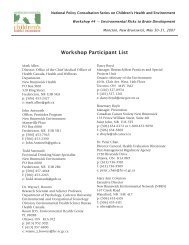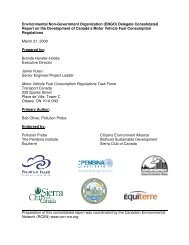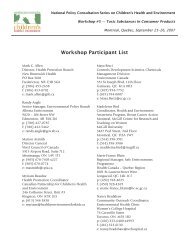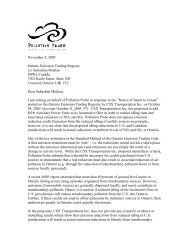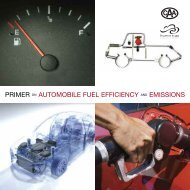Primer on Bioproducts - BIOCAP Canada
Primer on Bioproducts - BIOCAP Canada
Primer on Bioproducts - BIOCAP Canada
You also want an ePaper? Increase the reach of your titles
YUMPU automatically turns print PDFs into web optimized ePapers that Google loves.
What Other Nati<strong>on</strong>s Are Doing?According to the US Department of Energy,interest in bioproducts is developing steadilyaround the world. Sales of bioproducts in theUnited States more than doubled between 1983and 1995, from $5.4 billi<strong>on</strong> to $11 billi<strong>on</strong>. In1999, a White House Executive Order committedthe United States government to a three-foldincrease in its current use and producti<strong>on</strong> ofbioproducts and biofuels from biomass by theyear 2010. In 2002, the US Department ofEnergy published its Visi<strong>on</strong> for Bioenergy &Biobased Products in the United States, whichrecommended that government and industrywork to increase the share of biomass power tofive per cent, transportati<strong>on</strong> fuels to 20 percent, and biobased products to 25 per cent oftheir respective markets by 2030.Japan is also encouraging growth inbioproducts research and industrialdevelopment. Recently, bioproducts wereidentified as <strong>on</strong>e of three key biotechnologyinitiatives aimed at transforming c<strong>on</strong>venti<strong>on</strong>alindustry into industry that is based <strong>on</strong> cleaner,less greenhouse gas-intensive biologicalprocesses and products.Germany is a leader in developing a suite ofprograms, product standards and regulatoryframeworks designed to promote the use ofrenewable fuels, chemicals and materials, aswell as the development of envir<strong>on</strong>mentallyfriendly industrial processes.Brazil requires vehicles to use gasoline with atleast 20 to 24 per cent ethanol, which is locallyproduced from sugar cane. This regulati<strong>on</strong> toreduce dependency <strong>on</strong> foreign oil has resultedin as much as 40 per cent of Brazil’s vehiclesbeing powered by 100 per cent ethanol. Thegovernment is also encouraging the country —now the world’s largest ethanol producer — toseek export opportunities.Scandinavian countries, meanwhile, areactively encouraging the planting of fastgrowingpoplars and willows to make paperproducts and composite c<strong>on</strong>structi<strong>on</strong> materials.22CHAPTER 2 — BIOPRODUCTS TODAY


